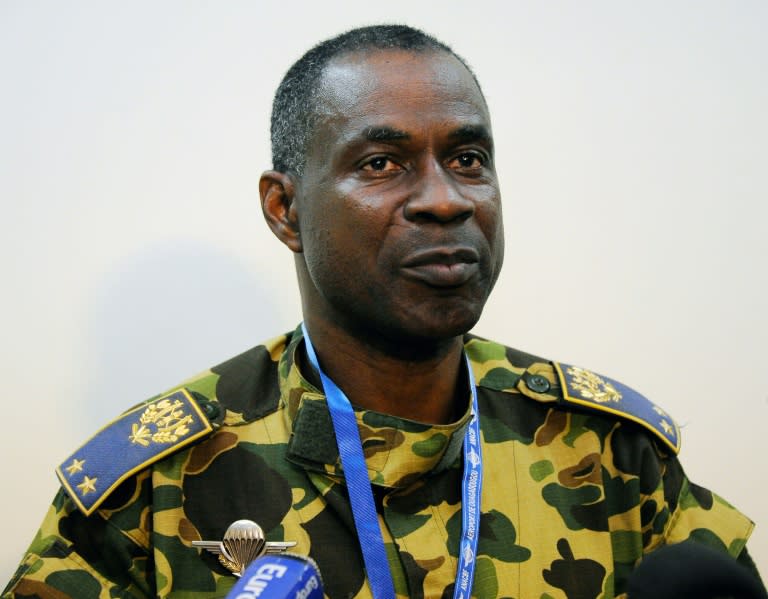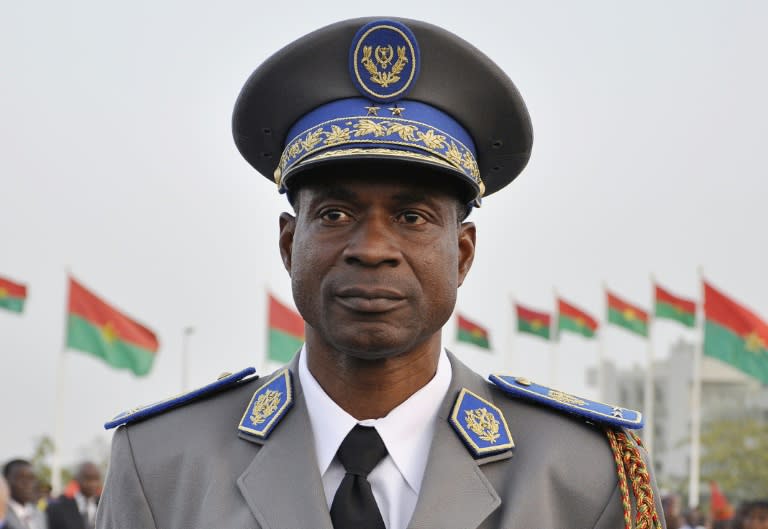Burkina's ex-military honcho Diendere emerges from the shadows
General Gilbert Diendere, named Thursday as head of a new ruling council in Burkina Faso after a military coup, has long been considered one of the most influential military figures in the country. For almost three decades, he was chief-of-staff to ex-president Blaise Compaore, his friend from youth and fellow soldier. He served largely behind the scenes, but was seen as one of the most powerful military officers in the regime that took power in 1987, also by force of arms. The graduate of France's elite Saint Cyr military academy is suspected of being at the head of a group of soldiers who killed Thomas Sankara, the Marxist revolutionary who became president in 1983. But Compaore finally provoked an uprising against him last year when he manoeouvred to prolong his 27-year-rule beyond his constitutional term. Hundreds of thousands of protesters took to the streets and set parliament ablaze. A few weeks after he was ousted and fled to Ivory Coast, his constant ally Diendere was dismissed as military chief and head of the powerful Presidential Security Regiment (RSP). Although officially sidelined last year, he had been seen each time the RSP sparked incidents with the transitional government. Officers from the RSP linked to Compaore on Wednesday burst into a cabinet meeting and seized acting president Michel Kafando, prime minister Isaac Zida, and two ministers, before announcing their coup Thursday morning. The coup leaders made Diendere president of the new National Council for Democracy (CND) in a statement read on the radio by spokesman Lieutenant-Colonel Mamadou Bamba. They had been prompted to act, he said, by the "serious pre-election security situation" ahead of new month's presidential and legislative polls, in which Kafando's regime had barred figures close to Compaore from standing. Believed to be in his 50s, of an athletic build, he is invariably seen wearing combat fatigues and a red beret. Diendere told French television on Thursday that he had had no contact with Compaore after the former strongman fled to Ivory Coast following his ouster last year. "I have had no contact with him, before or after," he said, in response to a question on whether Compaore was involved in the coup.



